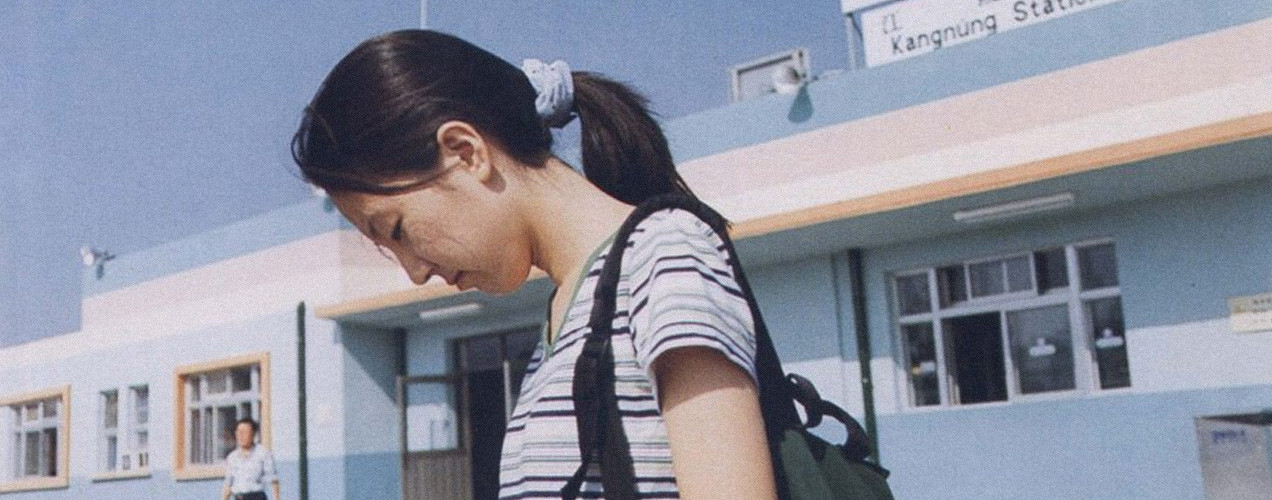1998 / Hong Sang-soo > It’s always a bit hard to talk about Hong’s films. His plots are so subtle and delicate that it’s almost impossible to say anything without giving away secrets. Moreover, the emotional resonance often comes days and weeks after the first viewing. The Power of Kangwon Province, Hong’s second feature film, is no different. While not as agreeable to my heart as Tale of Cinema, he once again dissects the thin border between man and woman, this time outlining a deep and brutal sense of loneliness. As with his other films, the lesson to be learned is a personal one, modified to each viewer’s own experiences.
Category Archives: Korea
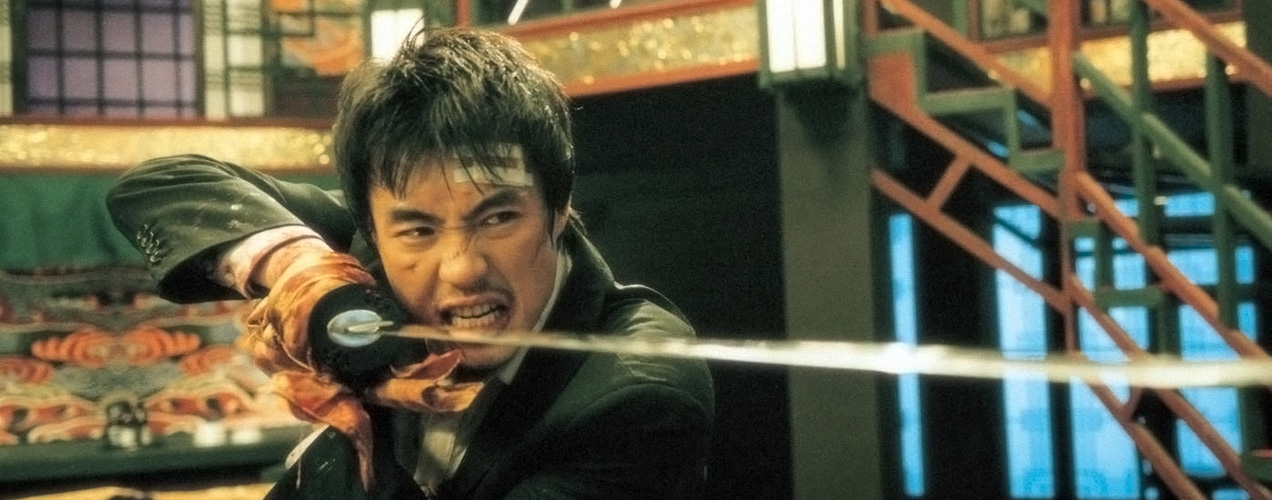
The City of Violence
 2006 / Ryu Seung-wan > I imagine that Ryu’s intention with The City of Violence may have been to exploit every inch of the martial arts/action genre he could while still having some semblence of plot and character development. And that he did, if barely, but just enough to progress the film towards crazier and more ridiculous fighting sequences. Clocking in at roughly 90 minutes, Ryu doesn’t force the Korean convention of the two hour film, but instead keeps it short and sweet. The meat may be thin, but the bones don’t break: The City of Violence is the result of every successful director’s wet dream.
2006 / Ryu Seung-wan > I imagine that Ryu’s intention with The City of Violence may have been to exploit every inch of the martial arts/action genre he could while still having some semblence of plot and character development. And that he did, if barely, but just enough to progress the film towards crazier and more ridiculous fighting sequences. Clocking in at roughly 90 minutes, Ryu doesn’t force the Korean convention of the two hour film, but instead keeps it short and sweet. The meat may be thin, but the bones don’t break: The City of Violence is the result of every successful director’s wet dream.
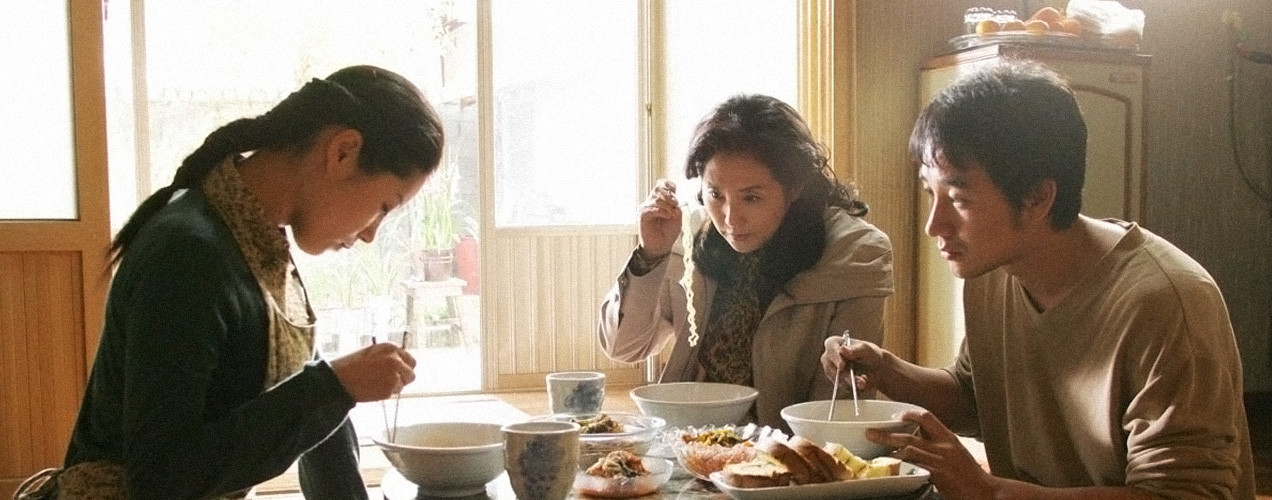
Family Ties
2006 / Kim Tae-yong > It’s probably quite sad that only 200,000 or so Koreans saw this film when it was released in May. But one has to wonder if the horrendous marketing (the posters depict a gleeful, silly family that scream slapstick and cheesy) is to blame. What the populace missed out on, sadly, is a meticulously crafted take on the nuances of family life, generations and how time helps us heal and grow.
The primary reason for its success as a film is its freshness: While there are typical melodrama storylines present, Kim does an excellent job in making sure to not continuously delve into cliches. The dialogue is very true to life, often genuinely comedic and timed just right. It’s rare to find a film nowadays where one minute you’re in a pit of sadness, and then suddenly you find yourself laughing uncontrollably.
The cast is superb as well. Moon So-ri, the woman who can do no wrong in my book, bounces back from the muddy script in Bewitching Attraction to score an incredible yet subtle performance. Kong Hyo-jin shines as an enigmatic daughter of a dying woman, though the the solidity of the script makes almost every character and actor look good.
It’s hard to recall if any film in recent memory has approached the subject matter of family relationships in as intelligently a fashion as this. Kim’s portrayal is delicate, fair and realistic. Even the very end, which for a minute or two seems incredibly nonsensical, is surprisingly fitting—That, to me, was proof positive of a great two hours.
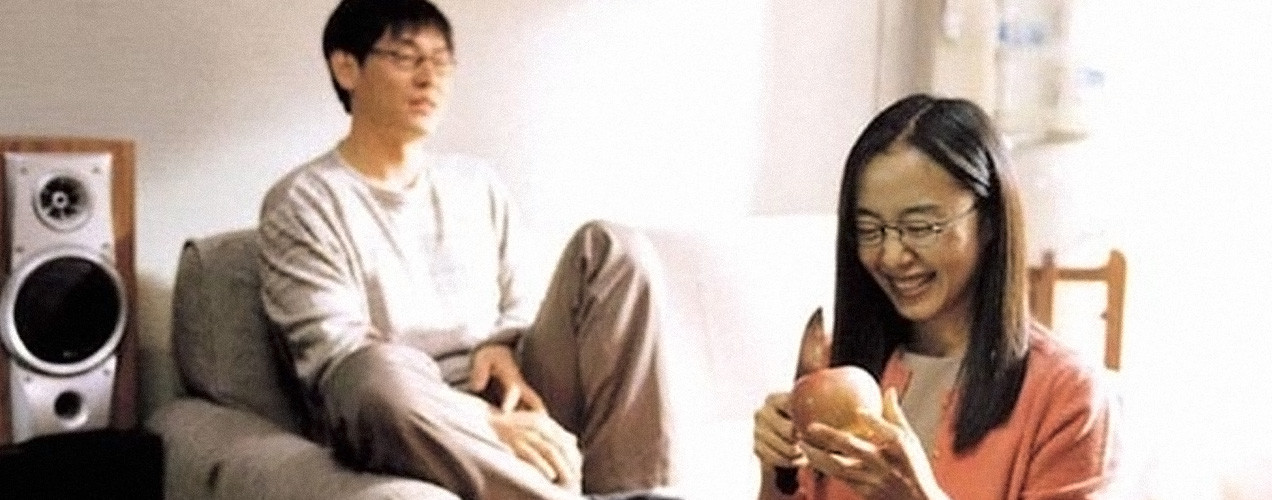
I Wish I Had a Wife
2001 / Park Heung-sik > Two of Korea’s finest actors (Peppermint Candy’s Sol Kyung-gu and Happy End’s Jeon Do-yeon) in a romantic comedy? While an interesting setup, the script itself is often flaccid and tries too hard to be anti-mainstream. And that’s pretty unfortunate, because it’s not often you get actors of this caliber to jump onto a film of this sort. Often quite predictable and drawn-out, I Wish I Had a Wife tries to mimic the pacing and emotion of films such as Christmas in August and Someone Special, but ultimately crumbles into an overwhelmingly mediocre production. Recommended for fans of the actors, but no guarantees for those who like romantic comedies.
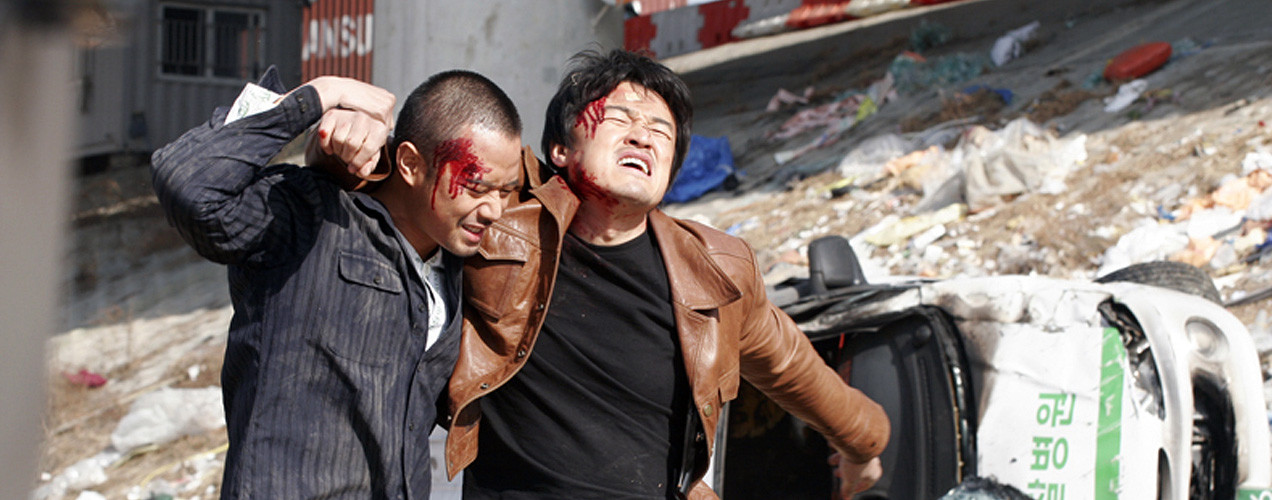
Les Formidables
2006 / Cho Min-ho > It’s becoming a bad habit: Long, drawn out action flicks from Korea that try to have a deeper meaning, some level of emotion, but ultimately end of being a limp exercise in keeping our interest. To further add to the group we have Les Formidables, a buddy film of sorts, but not really. Unlike Bloody Tie, which showed considerable potential before caving into its own plotline, Les Formidables never truly gets off the ground. We always wait for something to happen, something we haven’t seen 6.2 million times before, but that never passes. The proper formula for this and other, similar films: Reduce the superfluous emotional baggage, recut it into ninety minutes, and then maybe we’ll have something watchable.
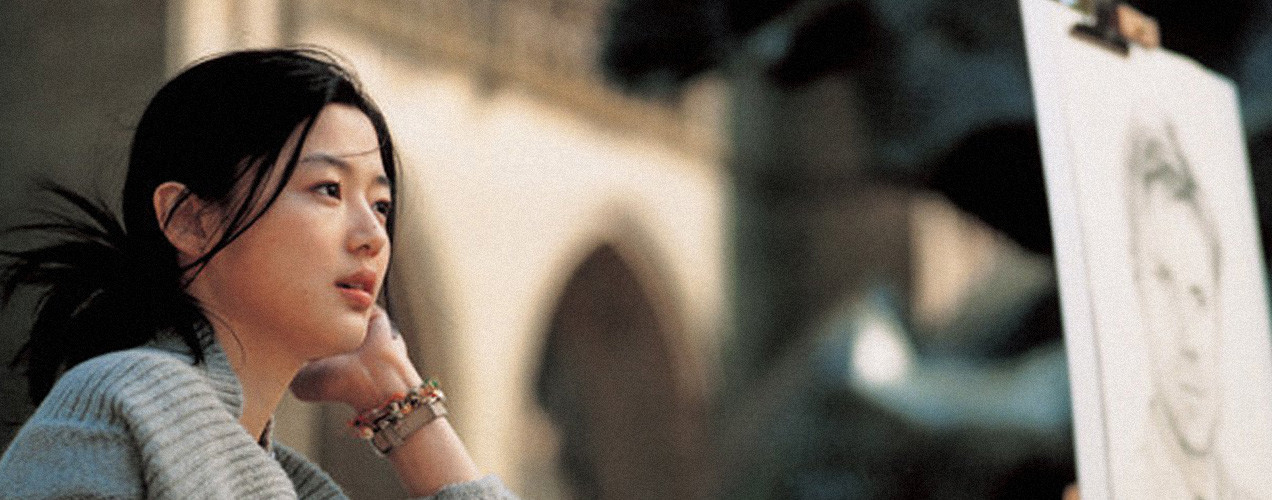
Daisy
2006 / Andrew Lau > What do you get when you combine Infernal Affairs director Andrew Lau with the writer/director Kwak Jae-young of My Sassy Girl? Apparently a love triangle between Jun Ji-hyun, a cop and a contract killer. Having watched the 124 minute director’s cut, it’s pretty understandable why the Korean audiences didn’t initially take on this film: The theatrical cut had much of the initial storyline development shortened into one, tight package that skews the objectivity and thoughtfulness present in the longer version.
The film itself is somewhat slowly paced, but absolutely beautiful (as one should expect). Jun, for once, plays a girl of calm demeanor, which befits her considerably more than the loud, obnoxious teens she’s portrayed in films such as My Sassy Girl and Windstruck. Kwak’s strength is generally exposition, and in Daisy, his skillful storytelling is highlighted well. It’s important to weigh the background plot a little less than the love story itself (which the film does successfully), but inevitably the weakest point of the film is Kwak’s inability to avoid a barrage of melodrama in the finale. He’s done this before, so it shouldn’t be surprising by any means. Taking into effect the flock of unnecessary flashback sequences later in the film, Daisy fails to reach a higher ground—A disappointment, considering how strong a start it had.
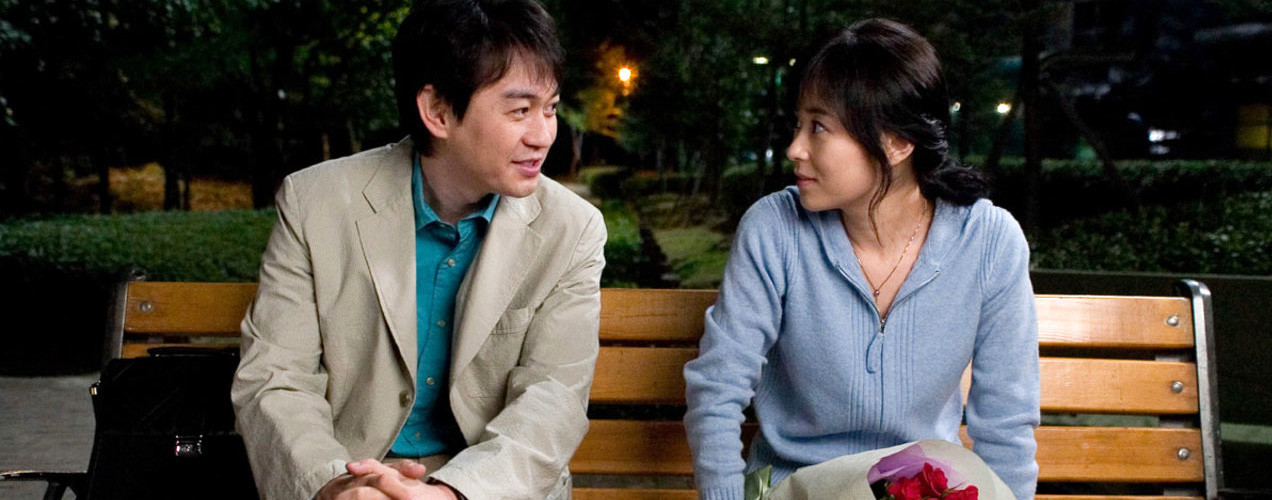
My Scary Girl
2006 / Son Jae-gon > With a strong beginning, My Scary Girl hints of something different: a slightly offbeat dark romantic comedy that could stand out from the crowd. As the film goes on, however, the pacing stutters and the introduction of new characters gets messy. Moreover, a lot of the verbal wittiness in the film seems to have been lost in the translation. A great case of contrast would be against last year’s Rules of Dating, where the relationship between the primary characters drove the film. Here, unfortunately, there is too much dependence on the gimmick of the girl being a “murderer” and its necessary exposition.
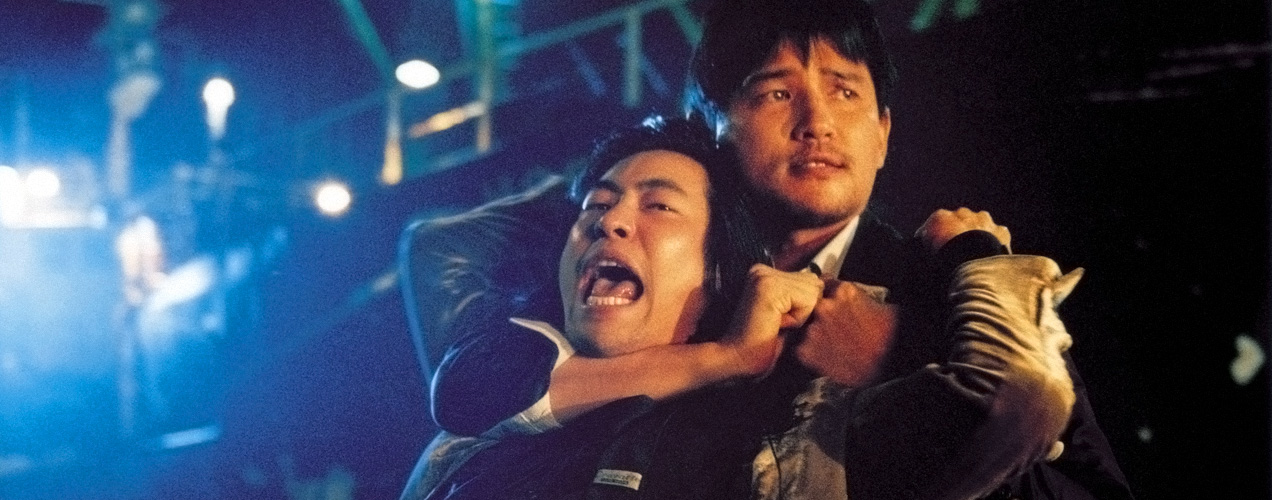
Bloody Tie
 2006 / Choi Ho > While promising simply due to its starring duo—Crying Fist’s Ryu Seung-beom and You Are My Sunshine’s Hwang Jeong-min—Bloody Tie ends up being a bloody mess. The premise is of a semi-crooked detective playing footsies with a dealer-turned-informant in a crystal meth-infested Busan. In theory, this could have unraveled into a terrific action/drama, however the muddiness of the plot, the opaqueness of the characters’ motivations and failure of the film to set a consistent tone combines into a rather wasted effort.
2006 / Choi Ho > While promising simply due to its starring duo—Crying Fist’s Ryu Seung-beom and You Are My Sunshine’s Hwang Jeong-min—Bloody Tie ends up being a bloody mess. The premise is of a semi-crooked detective playing footsies with a dealer-turned-informant in a crystal meth-infested Busan. In theory, this could have unraveled into a terrific action/drama, however the muddiness of the plot, the opaqueness of the characters’ motivations and failure of the film to set a consistent tone combines into a rather wasted effort.

Oasis
2002 / Lee Chang-dong > One of the greatest, if not arguably the most unexpected, love stories ever captured on film, Oasis is a tour de force of emotion from one of Korea’s finest directors. It’s an awkward but endearing tale of discovery between a woman with cerebral palsy and a man, fresh out of jail, who seems to be not completely there. Both Moon So-ri’s performance as the woman and Sol Kyung-gu as the man are arguably the best duo seen in Korean film in the last five years.
In direct contrast to Lee’s Peppermint Candy, which delved into the psyche of the modern Korean man, here he brings forth the universal ideal that everyone deserves to love and be loved. There are many occasions during the film where it becomes hard, even painful, to watch, but the sense of payoff is grand when the credits roll. Oasis is a true testament to the power of film.

The King and the Clown
2005 / Lee Jun-ik > Nicknamed “The Korean Brokeback,” The King and the Clown surprised box office analysts when it became the highest grossing film in Korean history earlier this year. Made for a modest USD$4.5 million, Lee’s film draws considerably more parallels to Kaige Chen’s epic period drama Farewell My Concubine than it does to its nickname-sake.
The first half of the film is simply brilliant, telling the story of two small-time minstrels who journey to Seoul to escape abuse in the countryside. The first thing one notices is the acting: Marriage is a Crazy Thing’s Kam Woo-seong and often underrated Jeong Jin-yeong, who plays the tyrannical king, give two of the strongest performances seen in Korean film since arguably Lee Chang-dong’s Oasis. Second is the fact that the performances the minstrels give out in public are absolutely hilarious and thoroughly enjoyable, and that alone takes the film a notch above the ho-hum fanfare that plagues so many period dramas.
Inevitably, however, the film falls into the trap of becoming so incredibly melodramatic halfway through that one has to wonder if the screenplay is to blame or the direction. With the exception of a phenomenal operatic showcase, much of what happens inside the palace in the second half feels superfluous. But with all this being said, The King and the Clown is a must-watch for anyone curious enough to know what one in four people in South Korea took time to visit the theatre for.

